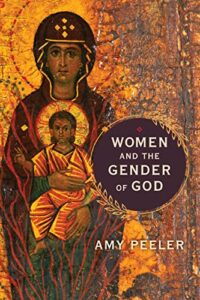 Summary: Theological discussion about God and gender.
Summary: Theological discussion about God and gender.
Women and the Gender of God has been on my to-read list since it came out. I have watched or listened to several interviews with the author, including this one at Holy Post and the 40-minute bonus episode. I eventually picked up the audiobook. The author narrates it well, as I prefer. But this is a book that needs a second reading, at least for me. I am not completely new to the topic, but neither trinitarian theology nor gender theory are areas where I have expertise. I have enough background to understand but not enough background to evaluate.
I remember as a teen going to a national youth conference (summer of 1989 or 90), and on one of the conference days, God was primarily referred to with feminine pronouns. I was not disturbed by it because I was aware that God was not gendered in a human sense, but I do remember thinking that it was poorly handled because there was no explanation or teaching around it; they just did it. And I spent a while talking through it with some of the people I was with because they were disturbed by it. That was probably the point, but disturbing teens without discussion is not how to address a history of patriarchal teaching.
Good theology should be nuanced, and Women and the Gender of God is appropriately nuanced. That nuance means I probably should have read this in print, not listened to the audiobook. The advantage of audio is that you can get a broad overview quickly, but it is hard to flip back and reread sections to ensure you understand the nuance.
I do not think that the main point that God is not gendered in the sense that humans are gendered should be controversial, but it is in some circles. Peeler’s style is to take objectives, explain them, and then address the concerns. Several reviews have taken passages wildly out of context and attributed those beliefs to Peeler. I honestly do not think that one review in particular (that I will not link to and which was written by a pastor who was at the time working at the same church) could in any way have been intended as anything other than a hit piece. Some traditionalists continue to refer to God in masculine terms (which is where Peeler ends up) but in a way that does attribute some sense of male priority to human males because of gendered language for God. Some want to suggest that the only reason for male references to God is patriarchal history. And the references to God are also part of discussions around transgender theory.
What I most love about reading theology is the questions that are raised. Good theologians push boundaries, even if they end up with traditional conclusions. Gender and the references to God are something I have thought about before. I do not end up exactly where Peeler does, although we are probably close. Peeler has a lot of grace for people who reference God in non-male terms because of a history of abuse or oppression. Still, she returns to holding the traditional language because that is the received language. Part of why I want to reread this is because I am not entirely convinced at that point.
I wish the Kindle and print editions were a bit cheaper because I primarily picked the audiobook because of the lower price. But I will pick it up in print eventually and read it again.
Women and the Gender of God by Amy Peeler Purchase Links: Paperback, Kindle Edition, Audible.com Audiobook